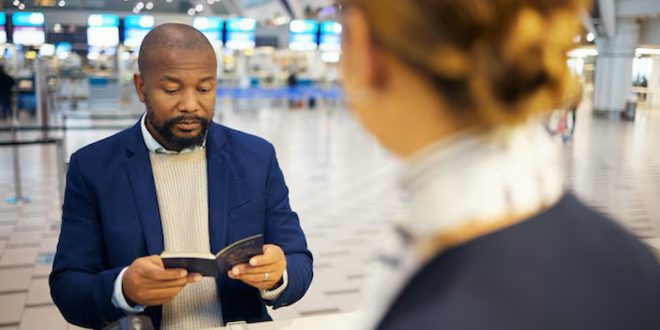CameroonOnline.ORG | In a move set to reshape the experience of international travelers, a new fee—dubbed the “visa integrity fee”—will soon be required of visitors to the United States who apply for nonimmigrant visas. Introduced through the recently enacted One Big Beautiful Bill Act, the fee has stirred both uncertainty and debate among travelers, immigration lawyers, and travel industry experts.
Set at a minimum of $250, this new charge will be levied in addition to the standard visa fees already in place. Business travelers, tourists, and international students from countries not part of the Visa Waiver Program will be directly impacted. For example, a prospective H-1B visa applicant who already pays $205 may now need to budget for a total of $455, excluding other mandatory costs such as the Form I-94 fee, which has also been increased from $6 to $24.
The Department of Homeland Security (DHS), which has been tasked with implementing the fee, has yet to release a clear timeline or specific guidance on how the payment will be processed. The coordination required between DHS and the Department of State has contributed to the delays and lack of transparency surrounding the rollout. The uncertainty has prompted legal professionals to advise their clients to view the fee as nonrefundable, despite a theoretical provision for reimbursement.
According to the law, travelers may qualify for a refund—eventually—if they fully comply with their visa terms. This includes avoiding unauthorized employment and ensuring that they do not overstay their visa by more than five days. However, since many U.S. visas remain valid for years, and no formal reimbursement process has been established, most travelers should not expect swift compensation. The Congressional Budget Office projects that only a small fraction of travelers will ever pursue or receive a refund.
The stated goal of the visa integrity fee is to reinforce compliance with visa terms and to reduce overstays, a key issue highlighted by immigration statistics. While overstay rates hover between 1% and 2%, they contribute significantly to the estimated 11 million undocumented individuals currently in the United States.
For travelers, the timing of this new financial burden is especially concerning. With major events like the FIFA World Cup and America’s 250th anniversary celebrations on the horizon in 2026, the added cost could dissuade many from visiting. Compounding the challenge is a significant funding cut to Brand USA, the organization charged with promoting travel to the U.S. abroad. Its budget has been slashed by 80%, casting doubt on its ability to effectively counteract the potential chilling effect of new travel-related fees.
While lawmakers tout the act’s broader investments in infrastructure and border security, critics argue that the additional cost to legitimate travelers, especially with so little clarity provided, undermines the bill’s benefits.
As implementation details remain pending, the global travel community waits—warily—for answers.
 CameroonOnline.org Cameroon news, Actualité Camerounaise, live Web TV & Radio, World News and a lot more
CameroonOnline.org Cameroon news, Actualité Camerounaise, live Web TV & Radio, World News and a lot more




